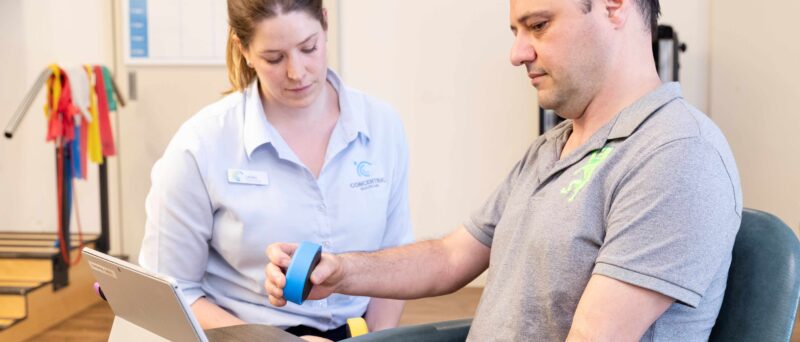Assistive technology (AT) refers to physical supports that enable individuals to perform tasks they may otherwise struggle with, enhancing their ease and safety in completing daily activities. It encompasses a range of assistive and adaptive devices designed to meet diverse needs and challenges.
Types of Assistive Technology
1. Low-Cost Low Risk AT:
- Apps facilitating communication for individuals with speech or language difficulties.
- Non-slip mats for enhanced safety and mobility within the home.
- Adapted cutlery to aid self-feeding.
2. Low-Cost High Risk AT:
- Bed poles for assistance with mobility and positioning.
- Weighted blankets to promote relaxation and sensory regulation.
- E-Stim machines for therapeutic purposes.
3. Mid & High-Cost AT:
- Custom manual and powered wheelchairs with tailored seating configurations.
- Custom commode chairs for enhanced comfort and accessibility.
- Riser recliner chairs and multi-function height adjustable beds for optimal support.
- Other mobility devices and sleep systems to meet specific needs.
The Process of Prescribing Assistive Technology (AT)
- Identify Client’s Needs: Assess the individual’s requirements and determine the appropriate AT solution.
- Assessment and Evaluation: Conduct further assessment, such as MAT evaluation, to ensure suitability of the assistive technology.
- Face-to-Face Trials: Trial recommended equipment in person, with the assistance of equipment specialists if necessary.
- Selection and Evaluation: Narrow down options and assess the most suitable AT solution for the client.
- Impact Assessment: Understand how the chosen AT affects the client, their support network, and environment.
- Education and Exploration: Provide additional education and explore supplementary AT options to enhance overall function.
- Documentation and Application: Complete relevant documentation, including quotes, and assist with the application process.
Assistive technology plays a crucial role in empowering individuals with diverse needs to live more independently and comfortably. At Concentric, our allied health team ensures that each client receives the most appropriate AT solutions tailored to their specific requirements. They achieve this through a systematic process of assessment, trial, and selection.
If you would like to know more about AT and how Concentric uses these various physical supports to work together with their clients and their networks please contact 1300 148 160 or email support@concentric.com.au.


